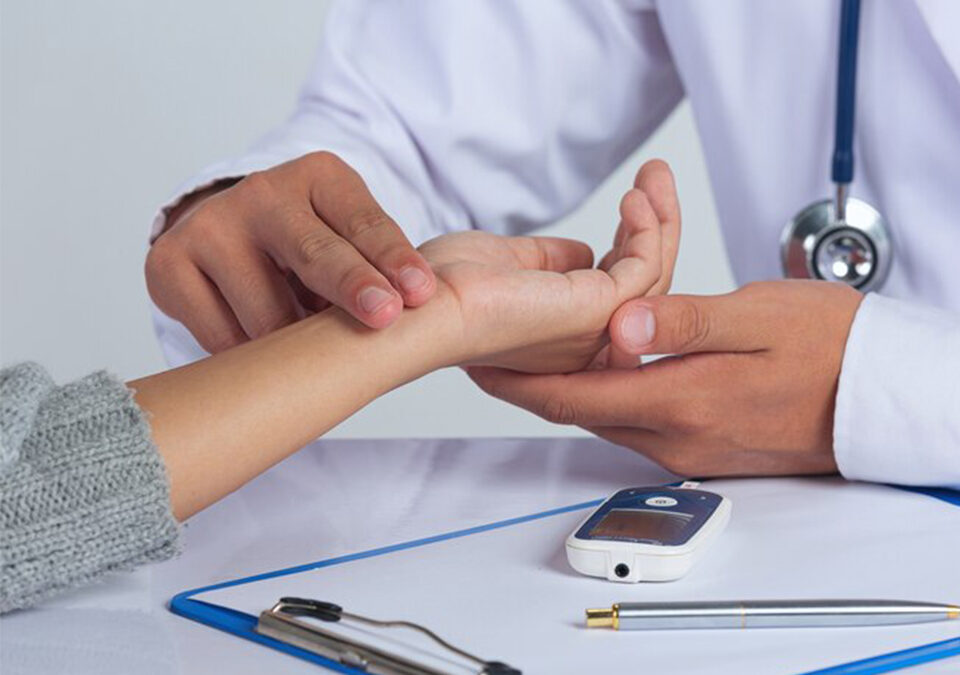
Diabetes and Wolfram Syndrome
February 28, 2022
How Diabetes Changes With Advancing Age?
February 28, 2022Individuals with diabetes can get into serious trouble and develop complications if their blood sugar or insulin levels are completely out of balance. Generally, they can adopt measures and take steps to rectify the problem or condition and put a stop to the symptoms. This lies at the core of diabetes healthcare.
That said, on certain occasions, they may not be able to help themselves, and you might need to step in to treat complications and save lives. Hence, you need to know how to take care of a diabetic patient.
Mentioned below are four diabetes-related complications that need prompt attention. So, let’s get started.
Hypoglycaemia
Hypoglycaemia is also known as low blood sugar. It occurs when an individual has an excess of insulin in comparison with glucose in their blood. It can occur in those with type 1 as well as type 2 diabetes. The problem manifests itself when an individual with diabetes skips a meal, exercises too much, consumes alcohol or takes too much insulin.
Symptoms
- Seizures
- Blurred vision
- Confusion
- Passing out
Remedy
Ask the individual to check his or her blood sugar level if you think they are too low. Help them to follow the 15/15 rule: Consuming 15 grams of fast-acting carbohydrates (glucose tablets, gels, fruit juice, regular soda, or honey) and waiting for 15 minutes. If the condition persists, they need to consume more carbs and test their blood glucose again.
Diabetic Ketoacidosis
Diabetic ketoacidosis (DKA) is a life-threatening emergency that is caused when your body is deprived of insulin and your liver subsequently breaks down fat into ketones to generate energy, but at too rapid a pace for your body to handle. A build-up of ketones can alter your blood chemistry and eventually poison you. You may go into a comatose condition.
Symptoms
- Excessive thirst
- Dry mouth
- Frequent need to urinate
- Excessive tiredness
- Flushed or dry skin
- Fruity-smelling breath
- Nausea and vomiting
- Trouble in breathing
- Confusion
- Passing out
Remedy
If someone demonstrates early signs, encourage him or her to get their urine tested with a ketone test kit. If the ketone levels are high, the individual should contact a doctor. If they demonstrate serious symptoms, you must take the individual to an emergency room or seek urgent care right away.
Hyperosmolar Hyperglycaemic Syndrome (HHS)
High blood sugar or hyperglycaemia can lead to serious problems as well. HHS is not as common as DKA; however, it is more dangerous. It is a complication involving type 2 diabetes with extremely high blood sugar levels (over 600 mg/dL) with very few or no ketones.
Blood sugar levels in those with HHS rise over the course of several days or weeks, and their body tries to eliminate the excess glucose through frequent urination. When such individuals don’t drink enough water or fluids, they become extremely dehydrated and eventually develop HHS.
Symptoms
- Dry mouth
- Fast pulse rate
- Fever (over 101° F)
- Excessive thirst
- Frequent urination
- Confusion
- Hallucinations
- Slurred speech
Remedy
Call the individual’s doctor and take him or her to an emergency room or urgent care.
Preeclampsia
Those women with diabetes of any type (type 1, type 2, or gestational) during the phase of pregnancy increases the chances of developing preeclampsia, which is a serious condition of high blood pressure that can put the health of both the mother and baby in danger. Even if the foetus is not fully developed, the baby may have to be delivered. The precise cause of preeclampsia is not yet known.
Symptoms
- Blurred vision
- Witnessing spots or flashing lights
- Headache
- Swelling of the hands, feet, and face
- Lower back pain
- Vomiting
- Shortness of breath
- Anxiety
Remedy
Call the doctor right away. You may need to take the individual for medical care as soon as possible.
Now you know how to care for a diabetic patient at home.
On A Final Note

Diabetes and healthcare are two sides of the same coin. Extremely low or extremely high blood sugar levels will always cause complications such as hypoglycaemia and hyperglycaemia, respectively. Similarly, individuals with diabetes need to pay close attention to the insulin shots they are administering themselves. Too little insulin in the blood can lead to life-threatening diabetic ketoacidosis. Lastly, when it comes to diabetic healthcare, women, too, need to be cautious because diabetic women who are pregnant can develop preeclampsia, which can put the life of both mother and baby at serious risk.




